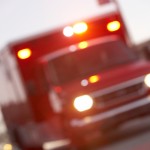Hernias, or the medical condition where a part of an organ is displaced and protrudes through the wall of the cavity containing it. Â There are approximately one million hernia cases per year. Out of those one million cases, eight hundred thousand of those are fixed through surgery. Â Not all hernias need surgery. If they aren’t causing you pain or discomfort then you may be able to wait on having surgery. Your stomach wall won’t just heal itself, so for your hernia to be completely resolved surgical intervention will be needed. Â Though sometimes if the hernia is small enough and is not symptomatic they can be left alone.
There are five different types of hernias:Â Â Â There are inguinal, incisional, femoral, umbilical, hiatal.
The different types depends on where the hernia is located. Â
- Inguinal hernias are when a small part of your intestines push through the stomach wall.
- Incisional hernias are when tissue pushes through the wall at the site of a previous surgical incision. Â
- Femoral hernias are tissue that pushes its way through the wall of the groin or muscle wall area.
- Umbilical hernias happen when the intestines stick through the umbilical opening of the abdominal muscles.
- The last type of hernia is hiatal hernias and they occur when the stomach pushes through the top of your diagram and pushes into your chest cavity. Â
Inguinal Hernias
Inguinal hernias are the most common type of hernia. Â Three out of four groin hernias end up being inguinal. Babies and adults can get this type of hernia. It is less common in women due to the fact that the uterus is between the intestines and the abdominal wall. Â Babies can get this hernia if their abdominal wall doesn’t close entirely while they are developing. You cannot prevent your baby from getting this type of hernia. Â It just happens when the abdominal wall is weak. To help prevent it from happening though you can make sure to lift heavy objects with your legs and to try not to strain while pooping. Symptoms of an inguinal hernia are a visible bump near the groin, pain when you cough, you have pain and weakness around the groin, and you could have swelling of the testicles. Surgery is the only way to fix an inguinal hernia.
Incisional Hernias
Incisional hernias are most common in elderly people. Â This is when you develop a hernia around an old incision site. Â Incisional hernias are only abdominal tissue that is protruding making them the least severe type of hernia. Incisional hernias usually happen in the front part of the abdomen so you can usually see the bump on your stomach more visibly. Â Some symptoms you can experience, is redness or swelling around the bulge, nausea, vomiting, constipation, or increased pain when straining or lifting a heavy item. Â Surgery is the only way to fix an incisional hernia too, and it is usually necessary to have surgery. Surgery will make sure the old incision site will get cleaned out for infection, and then a mesh will be put over the opening of the abdominal wall to make sure nothing else can protrude out. Â
Femoral Hernias
Femoral hernias are the most common in women especially pregnant women. Â Like the other types of hernias femoral hernias have symptoms of nausea and vomiting as well as stomach pain. Â They can be caused by straining hard in lifting things, or even from giving birth which is why it is most common in females. Â There are two choices for surgery intervention with femoral hernias, Either laparoscopic surgery, or open surgery. Depending on your age, the size of hernia and the severity of the hernia will depend on what your doctor decides to do. Â
Umbilical Hernias
Umbilical hernias when in infants often can close on their own. Â Umbilical hernias in adults though usually need surgery. Umbilical hernias just give a small bulge or swelling around the navel. Â In infants umbilical hernias are usually painless, and the bulge sometimes cannot be seen unless the baby cries or coughs. It can cause nausea and vomiting. Â Umbilical hernias in children usually resolve but can take up to five years for the abdominal wall to close. They will wait to do surgery on infants unless the hernia is painful, the hernia is large, or the child is over the age of four or five.
Hiatal Hernias
Hiatal hernias if small usually don’t cause any trouble. Â They can cause heartburn, regurgitation of food, acid reflux, difficulty swallowing, chest pain, or shortness of breath. Â You are more susceptible to a hiatal hernia if injury or trauma occurs, being born with an unusually large hiatus or age related changes to the diaphragm. Most people don’t show any signs or discomfort. To diagnose your doctor will use an endoscopy. If there is recurrent acid reflux or vomiting, surgery or medication may be required. Â
All hernias need to be treated and diagnosed. Â If you think you could have one reach out to your doctor. Surgeries are common and sometimes what causes them is not always clear. Â Make sure you consult with your doctor so that he can find the best treatment for you if you are experiencing any discomfort. Â
Could that pain be a hernia? Get Checked #HealthStatus
Key Points
- 1There are one million hernia cases each year.
- 2Hernias can affect all ages infants through old age.
- 3Surgery is the most common and successful treatment for hernias.
Sources: webmd.com mayoclinic.org









Reply